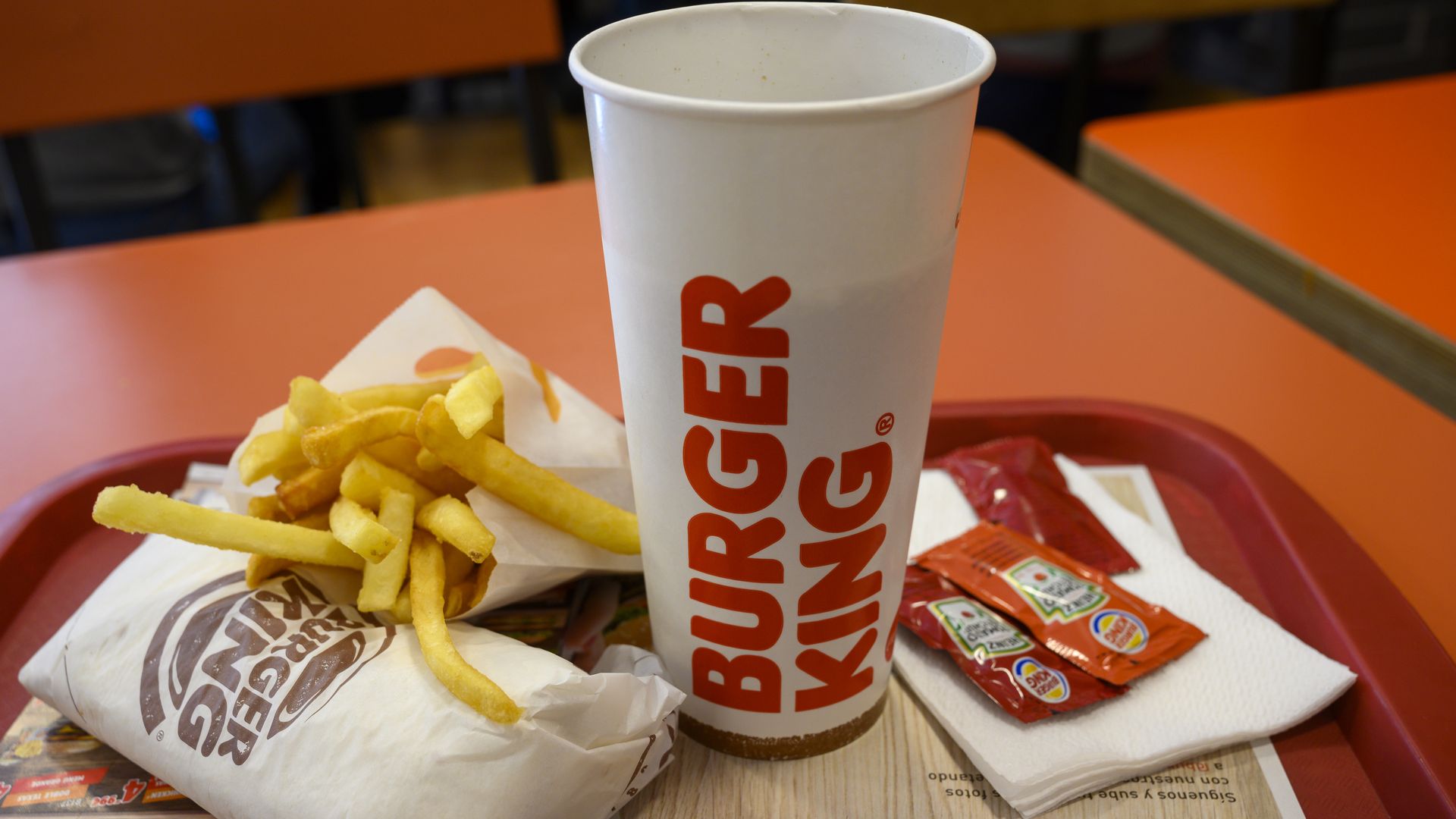Major fast food companies pledge to phase out "forever chemicals" in packaging

A Burger King meal. Photo: Horacio Villalobos/Corbis/Corbis via Getty Images
Chick-fil-A and Restaurant Brands International (RBI), the owner of Burger King, Tim Hortons and Popeyes, pledged this week to eliminate the use of "forever chemicals" in food packaging.
Why it matters: These extremely durable synthetic chemicals, which can last for hundreds of years without breaking down, are used in hundreds of consumer goods and have been linked to adverse health effects in humans and animals by the Centers for Disease Control and Prevention and the Environmental Protection Agency.
How it works: Per- and polyfluoroalkyl substances (PFAS) are a large family of chemicals that resist degradation by repelling oil and water and withstanding high temperatures.
- They have been approved for use in nonstick, water-repellent and fire-resistant products, including cookware and some food packaging, and can be released into local environments — including public drinking water systems — when these products are used and thrown away.
- Once they are in the environment, PFAS can accumulate in fish, wildlife and humans. The CDC detected multiple PFAS in nearly all of the people tested in its National Report on Human Exposure to Environmental Chemicals between 1999 and 2016.
- PFAS are primarily used by fast food companies as a proofing agent to prevent oil and grease from food from leaking through and damaging the structural integrity of packaging.
What they're saying: RBI this week committed to phase out the use of PFAS in "guest-facing packaging materials" globally by "the end of 2025 or sooner" by working with paper mills to find non-PFAS alternatives.
- Chick-fil-A also said Wednesday that it has already "eliminated intentionally added PFAS" to its packaging, though legacy, PFAS-containing materials may persist by the end of this summer.
Consumer Reports published an investigation into the use of PFAS in food packaging on Thursday.
- It tested more than 100 food packaging products from restaurant and grocery chains for PFAS and found different types of the chemicals in packaging "from every retailer we looked at," CR said.
The big picture: Environmental groups and members of Congress have called on the Biden administration to do more to restrict the use of PFAS, specifically by labeling them as hazardous substances, as President Biden previously promised to do.
- The EPA last year released its planned actions to regulate the pervasive chemicals, though it said it cannot easily regulate the chemicals by addressing one route of exposure or simply clean up exposed environments.
Go deeper: The Pentagon's multibillion-dollar "forever chemicals" problem
Source: Read Full Article
